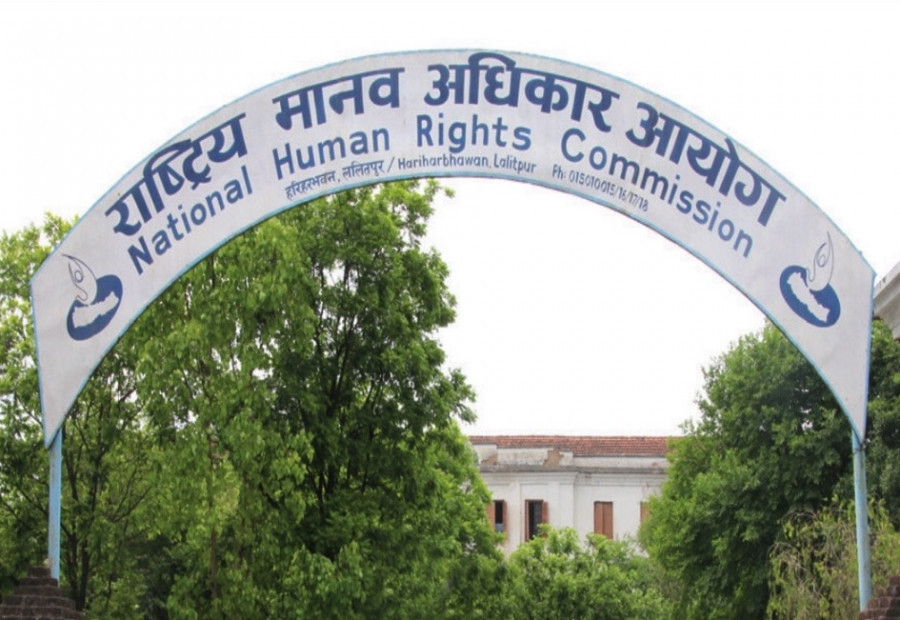Editorial
The world is watching
It would be shameful if the National Human Rights Commission's status were to be downgraded.
On December 15, 2020, President Bidya Devi Bhandari issued an ordinance to amend the Constitutional Council (Functions, Duties, Power and Procedure) Act 2010, changing the provision that required the necessary quorum for holding a meeting of the council. As per the amendment, the quorum would be a simple majority of the existing members instead of the earlier provision that required five of the six members to be present, including the prime minister, the chair of the council.
In a strategic move, the council convened the same day with three members of the council—the prime minister, chief justice Cholendra Shumsher Rana, and National Assembly chair Ganesh Timilsina. The meeting also recommended 38 names for 45 vacancies in several constitutional bodies and sent the names to the Parliamentary Secretariat for a hearing on December 18, two days before the Lower House was dissolved. The nominations also included all five seats on the National Human Rights Commission. The ordinance has drawn global attention, with a complex situation where the involvement of the chief justice in the council decision is in question.
But despite international scrutiny and writ petitions against the ordinance, 32 individuals were appointed to various constitutional bodies on February 3, including the National Human Rights Commission, which saw the appointment of the chair and four commissioners. And it was the chief justice who administered the oath of office to the new commissioners. The appointments attracted strong condemnation from international human rights agencies, who warned that the government should immediately withdraw the ordinance that undermines the independence of constitutional human rights bodies.
In a joint statement, Human Rights Watch, the International Commission of Jurists and Amnesty International said, ‘Nepal’s Human Rights Commission is currently graded ‘A’ by the Global Alliance of National Human Rights Institutions for its compliance with the Paris Principles, which were adopted by the UN General Assembly as the basic standards governing the mandate and operation of effective national human rights organisations.’
The Paris Principles require foremost that the national human rights commission is independent of government and non-government organisations and should have legal, operational, policy and financial independence. The controversial ordinance and the subsequent appointments at the National Human Rights Commission have the world concerned that Nepal no longer complies with the principles and the legitimacy and credibility of the commission, as warned by international agencies in March. In April, the UN Office of the High Commissioner for Human Rights also sought clarification from the commission if the Paris Principles were ensured in the appointment process.
But warnings and concerns have fallen on deaf ears, and the commission’s image has been tarnished globally, especially after its controversial statement that international agencies were interfering in the internal matters of a sovereign nation. As the pressure to rectify the controversial appointments made in the constitutional bodies, especially in the National Human Rights Commission, grows, the government has shown no intent to address the concerns and reverse the damage. Instead, on June 24, President Bhandari appointed 20 chairs and members in 11 constitutional bodies. Lest we forget, the ordinance remains sub-judice in court.
The next special review of Nepal’s status is now slated for October this year, and the commission has until July 28 to justify if the appointments comply with international norms. A failure to comply with the Paris Principles means that the commission will lose its ‘A’ status accreditation, which was one of the betting points for Nepal to secure a second term at the United Nations Human Rights Council from 2021 to 2023. It would be shameful for Nepal if the commission’s status were to be downgraded and worse yet if the commission repeats its controversial statement of sovereignty and internal affairs. The spotlight is on prime minister Oli who has to respond with maturity and as a leader of a member state of the Human Rights Council. The world is watching if Nepal will uphold its commitment to human rights and democracy.




 13.12°C Kathmandu
13.12°C Kathmandu














